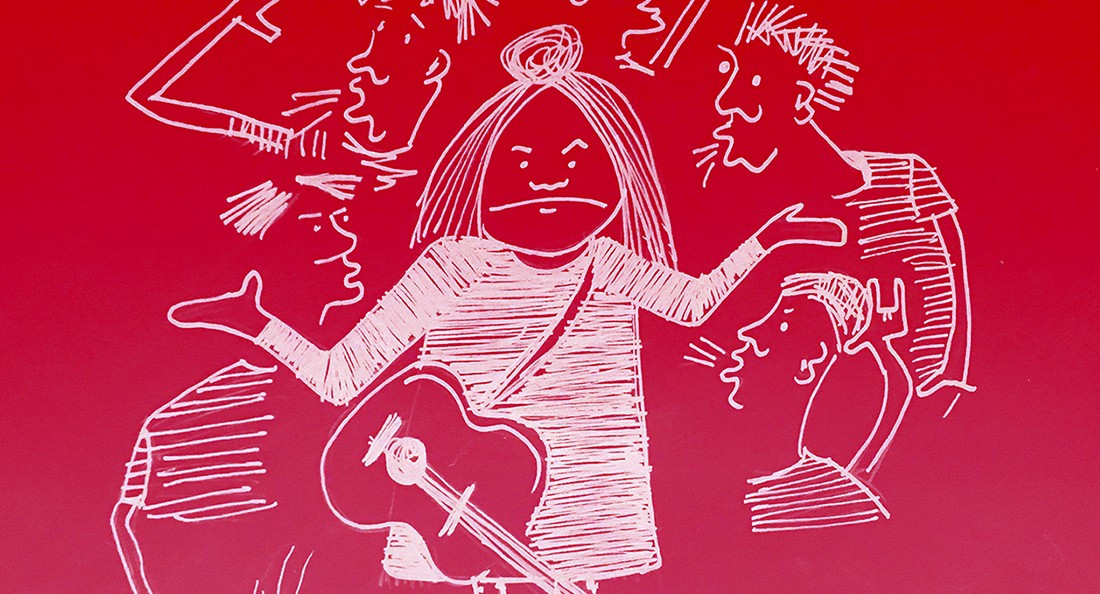Making Room At The Table
Change is slow, but not impossible, in the music industry
“So, what’s it like being a woman working in the music industry?”
It’s a tired question women in music have been asked many times before. Realistically, one could replace “woman” with any marginalized group, and, while it might spice up the article, it likely wouldn’t spice up our answers. No one wants to hear our honest answers.
I think it’s important to point out that as a white cis woman, my experiences working in a male-dominated industry (like music) are essentially Oppression-Lite.
The barriers I experience, compared to the barriers experienced by LGBTQ+ and BIPOC (Black, Indigenous, People of Colour) folk is akin to watching Gilmore Girls vs The Handmaid’s Tale. My experiences are frustrating, but it could be much, much worse.
I started the Big Fun Festival with a group of men, and I would be lying if I claimed that didn’t make things easier for our project. In this city, promoters, venue owners, sponsors and sound techs are primarily men.
I'm lucky, because the men I work with are talented and open. Together we continue to learn and evolve over the years. But racism, sexism, ableism and every -ism is systemically embedded so working with exclusively men in almost every project I do can feel incredibly isolating.
While I push for inclusion in my own projects, often in my professional and community commitments, those decisions have not been mine to make.
I constantly struggle to strike a balance between my feminism and my desire to be liked and easy to work with. Every interaction requires a conscious decision: which hat do I wear today? That of a chill festival director/board member or the “feminist killjoy” boss? What’s more important: my convictions or keeping my business alive? Why is no one else I work with having to make these choices?
I’ll tell you a secret: I’ve been wanting to quit for years. There’s only so many times a person can be told they’re just “being bitchy” when they’re being constructively critical, or brushed off by a sound tech because “they’re probably a groupie or something” before they shrug-emoji themselves out of a situation.
It can be incredibly soul-sucking navigating this behaviour regularly. But I have power in this small sector of my life to do some good. To try and book female, queer and BIPOC artists, hire female, queer or BIPOC freelancers, consult, support and mentor where I can. I see the gaps in the system, and, finally, I have a tiny bit of power to do something about it.
And representation matters. If I hadn’t met some of the women festival directors I’ve met over the years, I would have taken to heart the memo that this industry is not my place years ago. Despite swimming upstream for almost a decade in this industry, I’m still here. You should be, too.
The only way this industry is going to get better, more exciting and more vibrant is if more marginalized groups are given a seat at the table. And room needs to be made for these people. You can do this by supporting women, LGBTQ+ and BIPOC-run businesses and art. I’ve listed some of my favourites below.
Lauren Swan is a human working in the music industry. The executive director and co-founder of the Big Fun Festival in Winnipeg, her favourite colour is green, and she’s never met a dog she doesn’t like.
Published in Volume 72, Number 20 of The Uniter (March 8, 2018)







